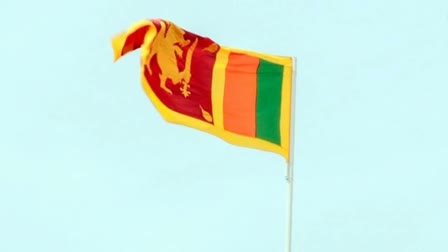New Delhi: With new Sri Lankan President Anura Kumara Dissanayake dissolving the country’s parliament and calling for fresh parliamentary elections on November 14, all eyes will be on what constitutional path the island nation will tread in the times to come.
This assumes significance as Dissanayake, who has been elected as the ninth Executive President, has promised to abolish the executive presidency system in Sri Lanka and restore the primacy of the parliament. According to the presidential election manifesto of the National People’s Power (NPP) alliance, representing which Dissanayake became President, the executive presidency will be abolished and the parliament will appoint the president of the country without any executive powers.
The NPP manifesto also states that a new constitution will be drafted and passed through a referendum with the necessary changes, if there any, after going through a public discourse.
Ceylon (as Sri Lanka was known then) gained independence from the British Empire in 1948. Under the Soulbury Constitution which consisted of the Ceylon Independence Act of 1947 and The Ceylon (Constitution and Independence) Orders in Council 1947, Ceylon became a constitutional monarchy with a Westminster parliamentary form of government. The monarch of Ceylon (the British monarch) served as the head of state, represented by the governor-general with the Prime Minister serving as the head of government. The governor-general replaced the position of the Governor of British Ceylon, who had previously exercised executive control over the entire island since 1815.
In 1972, a new republican constitution was adopted, which apart from changing the name of the country from Ceylon to Sri Lanka, declared the island nation a parliamentary republic with a president as head of state. The president was a largely ceremonial figure; real power remained vested in the Prime Minister. William Gopallawa who served as the last Governor-General of Ceylon, became the first President of Sri Lanka.
In 1978, the Second Amendment to the Constitution replaced the Westminster system with a more semi-presidential system. The presidency became an executive post based closely on the French model, and was now both head of state and head of government, with a longer term and independent from Parliament. The president was the commander-in-chief of the armed forces, head of the cabinet of ministers, and has the power to dissolve and call a parliament. The Prime Minister would serve as both an assistant and the deputy to the president and also the president’s successor.
The executive presidency was introduced under President JR Jayewardene of the United National Party (UNP) in 1978. It was intended to stabilise the country's governance by ensuring continuity in executive leadership, particularly in times of crisis, and to promote a more centralised decision-making process to address the economic and political challenges of the 1970s.
Jayewardene believed the system would allow for quicker decision-making, avoiding the legislative deadlock and factionalism often associated with parliamentary systems. This was especially pertinent as Sri Lanka faced economic difficulties and the early signs of ethnic conflict between the Sinhalese and the Tamil minorities. The concentration of power in one individual has often led to accusations of authoritarianism. Multiple presidents have been criticised for overstepping democratic norms, controlling media, repressing opposition, and stifling dissent. This centralisation of power has led to concerns about the undermining of democratic institutions. It is in view of this that the NPP has made abolishing the executive presidency a priority.
What is the parliamentary election process in Sri Lanka?
The last parliamentary elections in Sri Lanka were held in 2020. Nominations for the 2024 parliamentary elections will be accepted from October 4 to 11. Following the election, the newly elected parliament is expected to convene on November 21.
The Parliament of Sri Lanka is a unicameral legislature, and it consists of 225 members. Of these, 196 members are directly elected by the people from multi-member constituencies using the proportional representation system. The remaining 29 seats are allocated through a national list based on the overall performance of political parties in the election.
